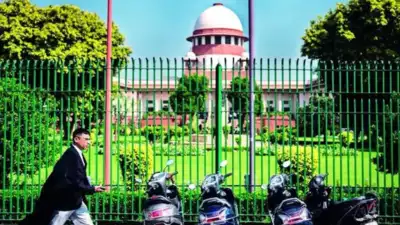#IndianSuccessionActThe Supreme Court of India has consented to hear a petition challenging whether or not a practicing Muslim may prefer to be regulated under the secular Indian Succession Act, 1925, rather than conventional Muslim personal law in cases of inheritance.
The issue was presented before a bench led by Chief Justice Sanjiv Khanna and Justice Sanjay Kumar, who issued notices to the Government of Kerala and the Central Government calling for their response to the plea.
Petitioner Naushad K.K. from Thrissur in Kerala asked for a legal pronouncement that he should be permitted to apply the Indian Succession Act to property and inheritance matters even though he practiced Islam. The petitioner’s plea maintains that freedom to practice religion cannot limit the rights of individuals from choosing secular legal provisions, particularly in matters like succession and inheritance.
Presently, Section 58 of the Indian Succession Act is exempting Muslims from its purview. Instead, Muslims in India are generally subject to the Muslim Personal Law (Shariat) for matters such as inheritance, divorce, and marriage. The petitioner argues that this exemption restricts the constitutional right of equality and choice.
The bench has observed that there is already a similar case pending before the court where the petitioner having renounced Islam, wanted to be regulated by the Indian Succession Act. But in the case of Naushad, he is a practicing Muslim and continues to demand the applicability of secular succession law.
This judicial evolution occurs when the discussion of personal laws and the demand for a Uniform Civil Code is gathering fresh steam in the nation. The court’s ultimate decision in this case can lay down an important precedent, particularly in determining whether personal religious laws are enforceable or whether one can choose to go under secular regimes for particular areas of one’s legal existence.
The case has now been clubbed with other similar petitions and will be heard in due course. The central and state governments’ responses are likely to further define the legal boundaries of personal liberty and secular choice in civil affairs.









